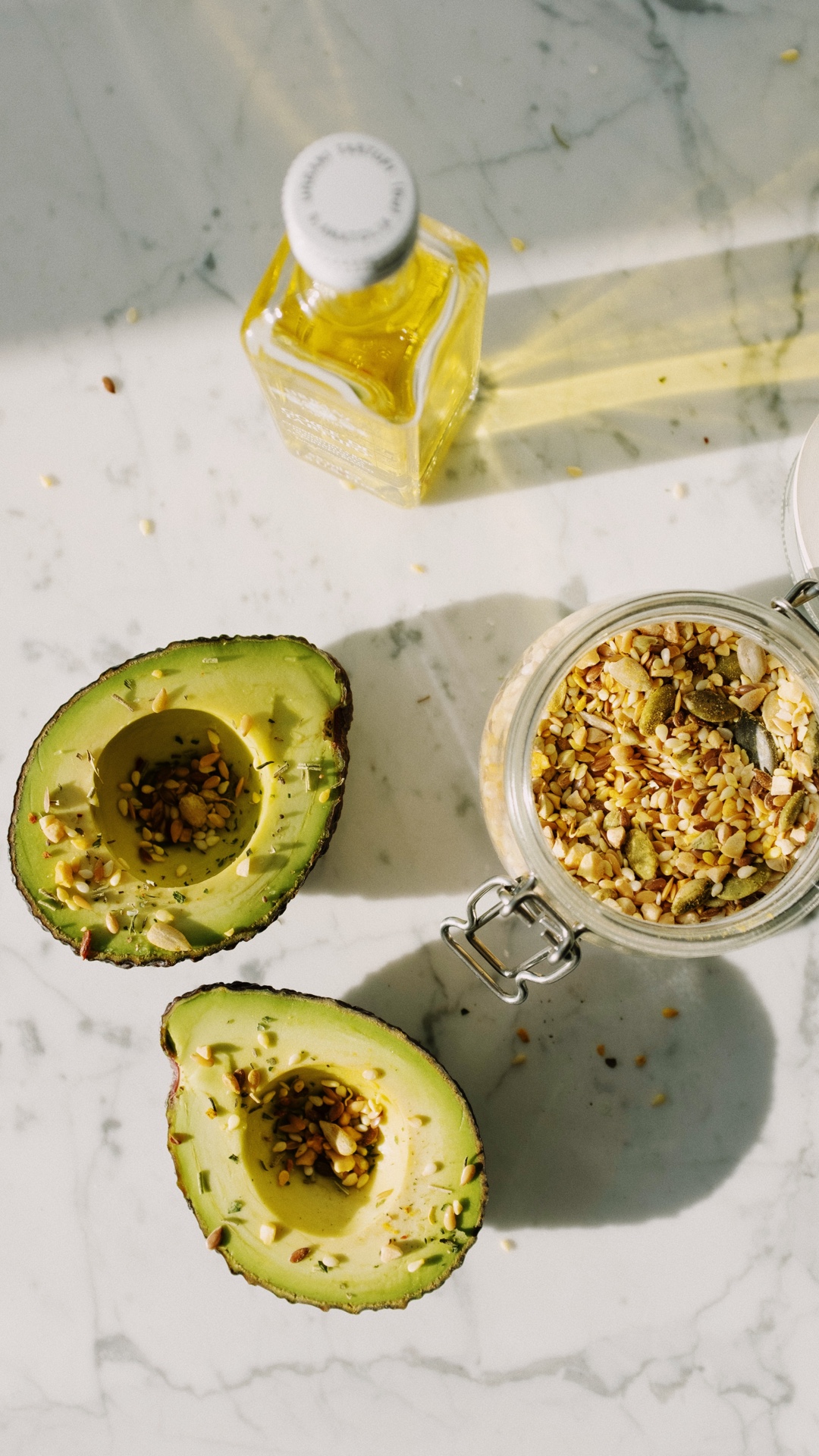Are seed oils healthy or unhealthy? The jury is still out, but if you’re looking for nutritious alternatives, we’ve got you covered.
It can be difficult to keep up with ever-changing nutrition advice. One day we’re told to eat hearty breakfasts to maintain a healthy metabolism. Next, we’re told to fast until lunchtime to give our digestive systems a deserved break. We sip celery juice to cure inflammation, we swear off carbs in favor of fats, and we mimic the diets of cavemen. But the goal is always the same: to live a little longer and to feel better all the while.
Personally, I don’t try many nutrition trends. But when I read that people should avoid cooking with or consuming foods that include seed oils, I immediately bought into it. It made sense. Oils like safflower, canola, and soybean appear in the ingredients lists of many processed foods. And there’s a lot of smart marketing supporting the crusade against seed oils. Many of the food brands I trust boast being seed oil free in the same way they advertise being organic.
But like much of the nutrition advice online, the research on seed oils is mixed. While some studies point to these oils causing inflammation that can lead to chronic disease, others have found the opposite. This is where things get tricky. Is the crusade against seed oils well intentioned? Or simply a marketing ploy disguised as nutrition advice?
I asked Laura Poland, a registered dietitian. Her verdict: There’s no reason to worry about cooking with seed oils or eating foods that contain them.
“I don’t think the research is strong enough to say that we should be concerned with unsaturated foods like seed oils,” she says.
So why do seed oils get such a bad rep? Some of the confusion, she says, stems from the fact that studies do show that repeatedly heating up seed oils is associated with oxidative stress, which may cause cancers and cardiovascular diseases, among other health issues. For this reason, she says not to continually reheat the same oils when cooking. But, most people likely aren’t doing that anyway, she says, and if you are, it’s an easy habit to break.
“I think that’s where some people have latched onto this idea that they’re bad,” says Poland.
Another aspect of seed oil consumption that worries people is the presence of omega-6 fatty acids. Seed oils are rich in these fats; however, some studies show they can contribute to inflammation. Chris Kresser, co-director of the California Center for Functional Medicine and author of The Paleo Cure, argues on his blog that a higher omega-6-to-omega-3 ratio can be bad for a person’s health.

Read more: The Best Foods for Brain Health
He writes that the ratio of omega-6 to omega-3 should be one to one, and when that balance is off, there’s an imbalance of pro-inflammatory (omega-6) and anti-inflammatory (omega-3) mediators.
“This imbalance produces a state of chronic inflammation that contributes to numerous chronic disease processes,” he writes.
But again, the research here is mixed. A 2019 study explored whether linoleic acid, an essential omega-6 fatty acid, could contribute to cardiovascular disease. Part of the hypothesis looked at whether the fatty acid caused the kind of inflammation that leads to the disease. The study concluded that higher levels of the acid were actually linked to a lower risk of cardiovascular disease.
Given the mixed research, the question remains: should you stop consuming seed oils? Short answer: the jury is still out.
“Nutrition is such a new science, and it’s very difficult to study,” Poland explains. “That’s not to say there won’t be a human study that says we shouldn’t have as much omega-6. I have heard that occasionally for 20 years, but there hasn’t been good, evidence-based research to change my communication to my clients.”
But don’t worry, if you’re still hesitant to include seed oils in your diet, there are plenty of other options. Here are a few of our favorites.
Read more: Why & How to Cook With Avocado Oil
 Avocado oil is great for high-heat cooking thanks to its high-smoke point — so if you’re sautéing vegetables, this oil is your best friend. While it doesn’t have the neutral flavor of oils like canola, if you don’t mind the mild grassy flavor, it’s a delicious substitute.
Avocado oil is great for high-heat cooking thanks to its high-smoke point — so if you’re sautéing vegetables, this oil is your best friend. While it doesn’t have the neutral flavor of oils like canola, if you don’t mind the mild grassy flavor, it’s a delicious substitute.
 Ghee is a great alternative to have around your home for a couple reasons. For starters, it has a buttery flavor that complements most savory dishes. And unlike other butters (ghee is a clarified butter), it’s shelf stable. Stock your pantry for those moments you’re out of stick butter or pack it on camping or road trips for a punch of flavor when you’re cooking in the wild.
Ghee is a great alternative to have around your home for a couple reasons. For starters, it has a buttery flavor that complements most savory dishes. And unlike other butters (ghee is a clarified butter), it’s shelf stable. Stock your pantry for those moments you’re out of stick butter or pack it on camping or road trips for a punch of flavor when you’re cooking in the wild.
 If you’re in the market for an oil with a neutral flavor, reach for light olive oil. A splash of this won’t alter the flavor of your dishes too much. But a word to the wise: not all olive oil is created equal. In fact, most options on grocery store shelves aren’t real olive oil at all, so make sure you’re buying from trusted brands to ensure the olive oil you’re using is the real deal.
If you’re in the market for an oil with a neutral flavor, reach for light olive oil. A splash of this won’t alter the flavor of your dishes too much. But a word to the wise: not all olive oil is created equal. In fact, most options on grocery store shelves aren’t real olive oil at all, so make sure you’re buying from trusted brands to ensure the olive oil you’re using is the real deal.
 Perhaps the most versatile oil on this list, you can use coconut oil for everything from baking and cooking to a superb conditioning mask for your hair. Our only caveat: It has a pronounced coconut flavor, so take that into consideration when choosing when and how to use it.
Perhaps the most versatile oil on this list, you can use coconut oil for everything from baking and cooking to a superb conditioning mask for your hair. Our only caveat: It has a pronounced coconut flavor, so take that into consideration when choosing when and how to use it.
Read more: The Best and Worst Oils to Cook With

Shop Pillows
The Essential Organic Pillow Collection
Gentle, breathable, non-toxic support.





